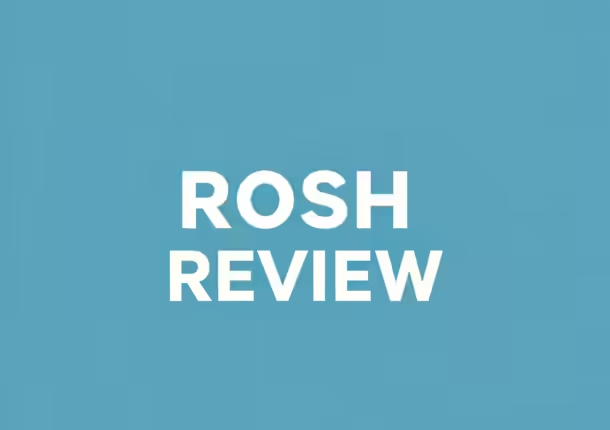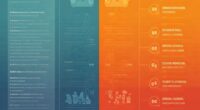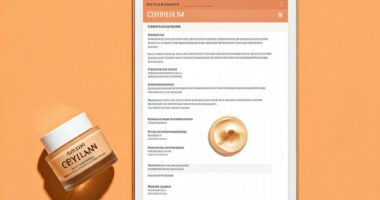Introduction to Rosh Review
Rosh Review has emerged as a game-changer in the world of medical education. With increasing competition and ever-evolving exam formats, students are constantly on the lookout for resources that can truly make a difference. Rosh Review promises to bridge gaps in knowledge and enhance learning experiences. But does it live up to the hype? This blog will dive deep into evaluating its educational impact, exploring how it helps students excel while also considering what could be improved. Let’s unravel the story behind Rosh Review and discover if it’s worth your time and investment.
The Purpose and Goals of Rosh Review
Rosh Review aims to enhance the learning experience for students pursuing medical and healthcare professions. Its primary goal is to provide comprehensive, high-quality test preparation resources that align with various curricula.
By offering a wide range of questions and interactive content, Rosh Review encourages active engagement. This approach helps learners grasp complex concepts effectively.
The platform emphasizes critical thinking and application of knowledge rather than rote memorization. It also strives to build confidence in users as they prepare for exams.
Additionally, Rosh Review seeks to foster a community among educators and students. Collaboration within this network can lead to shared insights and improved educational outcomes.
The purpose of Rosh extends beyond simple exam prep; it’s about cultivating a deeper understanding of material that shapes competent future professionals in healthcare fields.
Methodology: How the Educational Impact was Measured
To evaluate the educational impact of Rosh Review, a mixed-methods approach was employed. This involved both qualitative and quantitative data collection techniques.
Surveys were distributed to students who had recently used the platform. These surveys measured perceived knowledge gains and engagement levels. The feedback provided insight into user experience and satisfaction.
Additionally, performance metrics were gathered from various assessments before and after using Rosh Review resources. This allowed for a clear comparison of academic achievement over time.
Interviews with educators also played a crucial role in understanding how Rosh Review influenced teaching strategies. Their perspectives highlighted practical applications within classroom settings.
Data analysis revealed trends that illustrated changes in student learning behaviors as well as overall comprehension rates. Each method offered valuable information that contributed to the comprehensive evaluation of Rosh Review’s effectiveness in education.
Results: Positive Impact on Student Learning and Performance
The implementation of Rosh Review has shown promising outcomes in student learning. Many users report a significant increase in their understanding of complex subjects. This platform provides resources that adapt to individual learning styles, making it easier for students to engage with the material.
Students have experienced improved retention rates after utilizing Rosh Review’s practice questions and detailed explanations. The interactive format encourages active participation, which is crucial for effective learning.
Moreover, performance metrics indicate higher scores on assessments among those who integrated Rosh Review into their study routines. Educators have noted that this tool helps identify knowledge gaps early on, allowing timely interventions before exams.
These results highlight how targeted educational tools can enhance academic performance while fostering a deeper comprehension of subject matter.
Feedback from Students and Educators
Feedback from students and educators highlights the effectiveness of Rosh Review in diverse learning environments. Many students appreciate its user-friendly interface, which allows them to navigate through study materials effortlessly.
Educators often cite improved engagement levels among their pupils. The interactive features encourage self-assessment and critical thinking, making complex topics more digestible.
Students have mentioned that practice questions mirror real exam formats, reducing anxiety during actual tests. This alignment boosts confidence as they prepare for crucial assessments.
Moreover, many instructors value the data analytics provided by Rosh Review. These insights help them identify areas where students struggle, allowing for targeted interventions tailored to individual needs.
This two-way feedback loop fosters a collaborative atmosphere between learners and teachers. It creates an enriched educational experience driven by continuous improvement and adaptation to student needs.
Advantages and Disadvantages of Rosh Review
Rosh Review offers several advantages for students preparing for exams. Its extensive question banks and adaptive learning features provide a tailored study experience. This helps reinforce understanding and retention of complex medical concepts.
Additionally, the platform is user-friendly, making it accessible to a wide range of learners. The inclusion of detailed explanations after each question allows users to grasp material deeply.
However, some drawbacks exist. Not all students find the interface intuitive at first glance, which can lead to initial frustration.
Moreover, while Rosh Review covers many topics effectively, some niche areas may receive less attention compared to core subjects.
Reliance on online platforms may not suit every learner’s style; traditional study methods still hold value for many individuals seeking comprehensive preparation strategies.
Conclusion: The Importance of Evidence-Based Educational Tools
The landscape of education is ever-evolving, with new tools and resources emerging to enhance the learning experience. Rosh Review stands out among these as a powerful platform that leverages evidence-based practices to support students in their academic journeys. Its structured approach combines comprehensive content reviews with assessment tools designed specifically for healthcare education.
As educators and students seek ways to improve outcomes, it becomes essential to rely on platforms that are backed by research and measurable results. Review not only fosters improved learning but also equips users with the skills necessary for success in rigorous examinations. This strategic alignment between educational goals and student needs underscores the importance of utilizing well-researched resources.
Engaging with effective study aids like Rosh Review can significantly influence educational performance while providing valuable feedback for continuous improvement. As we navigate this changing landscape, embracing evidence-based educational tools remains vital in ensuring learners achieve their full potential in both knowledge acquisition and application.







